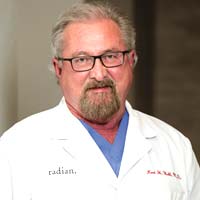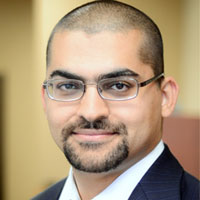People Want More Facial Hair Today, Doctors & Hair Transplants Step in to Help
For quite some time the trend of totally hairless, baby soft
skin was all the rage. Especially for men, who were clean and well shaven
without a five o’clock shadow. And likewise for women who had perfectly thin
and trimmed eyebrows.
But things have changed and it seems we've headed in the
total opposite direction. Thanks to the popularity of the hipster culture,
people now want more hair on their face than they can either grow naturally, or
grow back after years of removing it.
To do this, they are turning to doctors and hair transplant
surgery to add hair in places it will not grow.
For men, it mean being about to grow a nice full bushy beard
and side burns and for women it means achieving a look of full, commanding eyebrows
to frame the face.
Times of India recently took a look at this trend and its
rapid growth in a feature
piece. In India particularly, it's a huge trend for young and middle
aged men and women to go and get facial hair transplants.
Just like hair transplants done on the scalp, these
procedures take grafts of hair from a donor area on the patient and transplant
in the needed areas.
The frequency of people having these procedures is
increasing rapidly today and hair loss centers are getting busy helping not
just those who wish to have fuller hair on their face, but also people who are
opting for the hair transplant surgery to help them cover scars or any
deformity.
Hairfear - 5-13-2015
Frequently asked questions about hair transplant procedures
How much does a hair transplant cost?
Hair transplants can vary in price based off of the area in the world that you are interested in getting a hair transplant as well as the size of the area where you may need a hair transplant. Experienced doctors in the United States will often charge some of the highest prices for a hair transplant worldwide and this is why so many travelers make the move to other parts the world like Turkey, India, Thailand, Mexico...etc for their hair transplants.
Will a hair transplant hurt?
Although hair transplants may look like a particularly
unpleasant or painful experience is actually very little discomfort involved
with the surgery itself. Hair transplants are always done under an anesthetic so there's absolutely zero pain during the treatment itself. Many people actually relate the process as being very similar to going to the dentist for filling or root canal. Mild pain can persist over the course of postop treatment but he generally just resumes for a few days.
Who can deliver the best surgery?
It's usually best to consider working with surgeons who have and IAHRS certification or international alliance of hair restoration surgeons recognition. IAHRS can often deliver recommendations for the best surgeons in each particular area.
Is this scarring noticeable?
Any type of hair transplant will require the use of incisions throughout the scalp. There can also sometimes be a small scar from the donor area towards the back of the scalp. Asking to look at photos of the surgeon's previous work will help you to see roughly how bad the scarring could be. In most cases an experienced professional can limit the look of scarring and noticeable marks from the surgery.
How long does it take for the hair to grow?
In most cases hair growth will start within eight months and you can start to see a full effect from the hair transplant after a full year. The initial signs of growth can usually start between 3 to 4 months after the surgery.
Are the results permanent?
The hair follicles that are transplanted are generally the ones which are genetically resistant against the symptoms of baldness. As long as you receive hair loss treatment later in your life after the symptoms of balding have started to subside, you can have a better chance at permanent results.
While everyone know you've had surgery?
If you want to limit the chance that people may find out about your surgery it's important to give at least three weeks of healing as the surgical area will be affected and red just after surgery. After around a month of healing it can look far less noticeable. You could consider wearing a hat while time passes or opting for some extra time off if possible.
How long should I rest after surgery?
It's recommended to rest for at least a few days after surgery so that your body can recover. Trenton to over exert yourself and limit sexual activity, running in the gym for around 10 days after surgery.
Is it possible to lose more hair as a result of surgery?
There is always a chance of shock loss which happens when the hair is weak and miniaturizing after the surgery. As long as the surgeon is choosing the correct hair follicles and performing the surgery well it's possible to minimize the chance of this happening however.
Will I need another hair transplant?
The need for another transplant really depends on the individual. With a solid foundation surgery and working to potentially bolster results with drug therapy, you can improve the stability of the hair that was transplanted as well as prevent further loss. Getting a hair transplant early
on in your 20s or early on in life could lead to needing long-term transplants as hair loss can be progressive.







